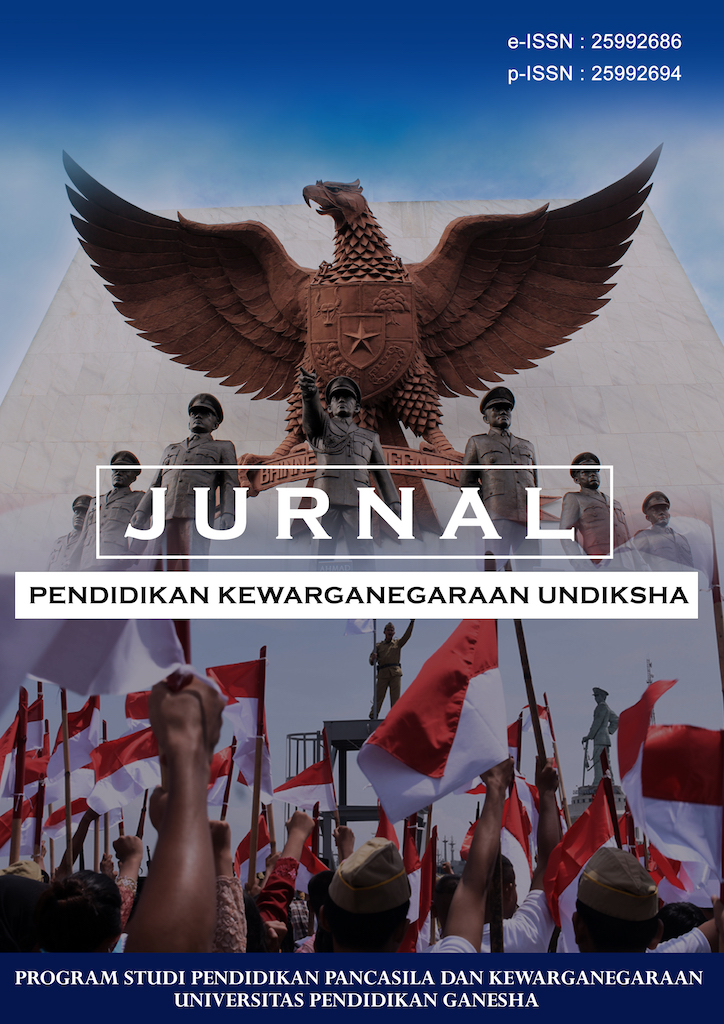PENGARUH PUTUSAN MAHKAMAH KONSTITUSI NOMOR 69/PUU-XIII/2015 TERHADAP HUKUM HARTA KEKAYAAN YANG DIPEROLEH DALAM PERKAWINAN BAGI PELAKU KAWIN CAMPUR
DOI:
https://doi.org/10.23887/jpku.v10i2.46962Abstract
Kawin campur pada praktiknya telah terjadi sebelum era internet merebak, tak dapat dimungkiri kemungkinan perkawinan campur menjadi lebih besar. Dalam rangka memenuhi kebutuhan rumah tangga, terutama untuk harta kekayaan berupa benda tidak bergerak. Pihak suami atau istri yang berkewarganegaraan asing, tidak diperbolehkan memiliki hak milik atas benda tidak bergerak di Indonesia. Permasalahan secara hukum ini tentu harus dicarikan jalan keluar. Terutama agar pasangan kawin campur yang telanjur tidak membuat Perjanjian Perkawinan, dapat memiliki aset tidak bergerak secara sah di Indonesia. Sekaligus ketentuan Pokok Agaria yang melarang orang asing memiliki hak milik atas tanah dapat terakomodir. Putusan Mahkamah Konstitusi Nomor 69/PUU-XIII/2015 menjawab isu hukum ini. Adapun tujuan penelitian ini yaitu untuk mengetahui pengaturan harta kekayaan pelaku kawin campur yang diperoleh dalam perkawinan sebelum adanya Putusan Mahkamah Konstitusi Nomor 69/PUU-XIII/2015, subtansi dan pengaruh putusan Mahkamah Konstitusi tersebut. Penelitian ini menggunakan metode penelitian hukum normatif. Penelitian ini bersifat deskriptif yang bertujuan untuk menggambarkan tentang suatu hal pada saat tertentu.
Published
Issue
Section
License

This work is licensed under a Creative Commons Attribution-ShareAlike 4.0 International License.
Authors who publish with the Jurnal Pendidikan Kewarganegaraan Undiksha agree to the following terms:
- Authors retain copyright and grant the journal the right of first publication with the work simultaneously licensed under a Creative Commons Attribution License (CC BY-SA 4.0) that allows others to share the work with an acknowledgment of the work's authorship and initial publication in this journal.
- Authors are able to enter into separate, additional contractual arrangements for the non-exclusive distribution of the journal's published version of the work (e.g., post it to an institutional repository or publish it in a book), with an acknowledgment of its initial publication in this journal.
- Authors are permitted and encouraged to post their work online (e.g., in institutional repositories or on their website) prior to and during the submission process, as it can lead to productive exchanges, as well as earlier and greater citation of published work. (See The Effect of Open Access)










